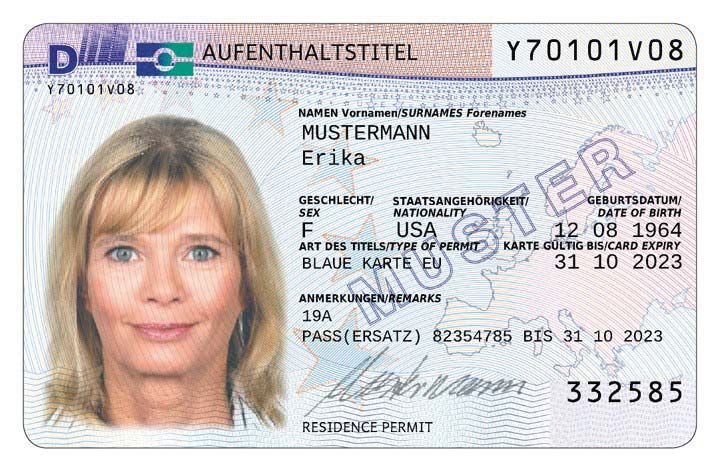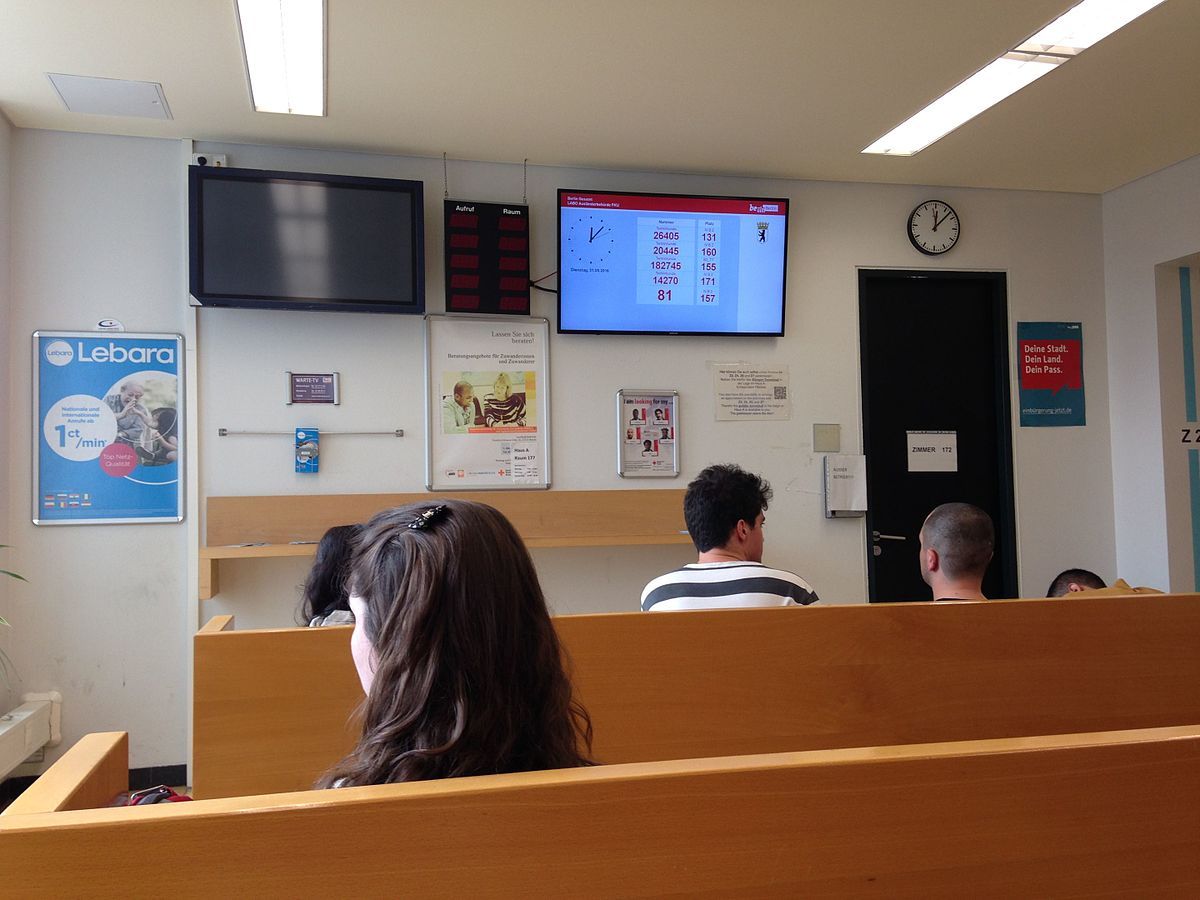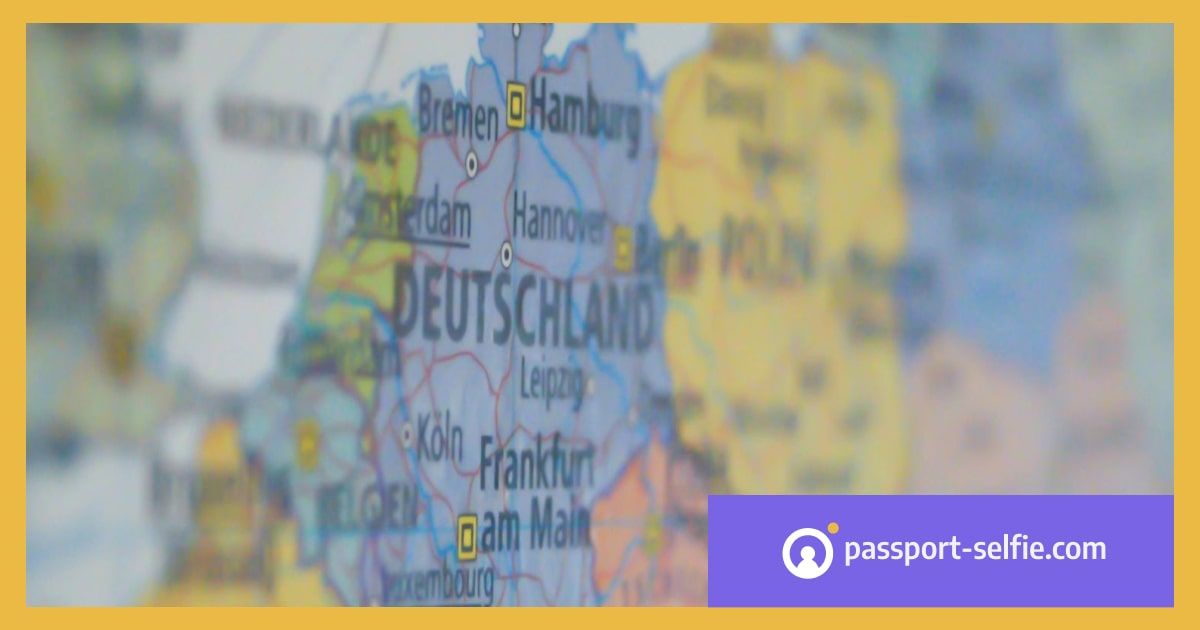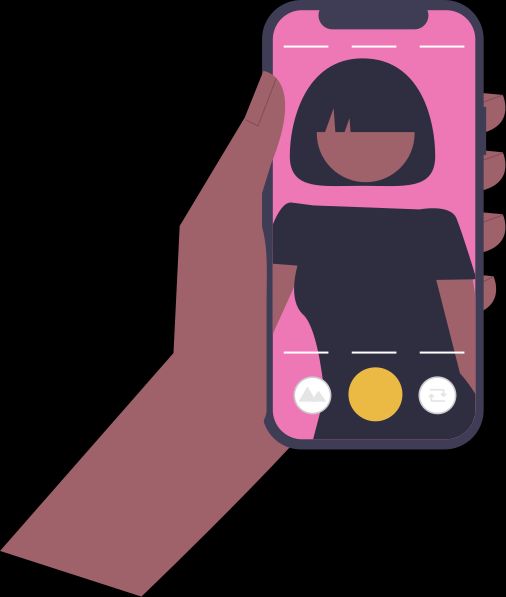Summary
Don't have time to read through this article? We've summarized all the important points for you:
- Germany offers diverse residence permits beyond work and study visas, including family reunion, freelance, entrepreneur, research, au pair, language course, volunteer, etc.
- Each permit has specific eligibility criteria and requirements, such as proof of financial means, health insurance, and relevant documentation.
- The application process varies depending on the type of permit and individual circumstances, with some permits allowing in-country applications while others require pre-arrival applications.
- During the application period, applicants may need sufficient savings, as working or studying might not be permitted until the residence permit is granted.
Thinking about applying for a residence permit (Aufenthaltstitel) for Germany? Navigating this process can seem daunting, but don’t worry, we’re here to help! Whether you’re planning to work, study, or join family in one of these countries, this article will give you all the information you need to apply for a residence permit.
Let's get started and make sure you're fully prepared to make your move smooth and successful!
Residence Permits in Germany
Living in Germany for more than 90 days typically requires a residence permit.
Here’s a quick guide based on your citizenship:
- EU, Iceland, Liechtenstein, Norway: No residence permit needed. You can live, work, and study freely. Just remember to register your address, get a tax ID, and secure health insurance.
- Switzerland: Thanks to the Agreement on the Free Movement of Persons between Switzerland and the European Union, Swiss nationals have the right to live and work in Germany without needing a visa or work permit.
- Australia, Canada, Israel, Japan, New Zealand, South Korea, UK, USA: A residence permit is required for work, study, or freelancing. You can visit for up to 90 days without a visa and apply for the permit either in Germany or your home country.
- Other Countries: You’ll need a job seeker visa to find work. For working, studying, or freelancing, a residence permit is necessary. Tourist visas can’t be converted to residence permits.
- Permanent Residents: You’re already covered to live, work, and study without needing another permit. No need for permission to change jobs or start a business.
- Tourists: No residence permit needed for short visits. A Schengen visa might be required, check if you need one.
Residence Permit Types for Germany

Looking to stay in Germany and not sure which residence permit you need? This simple overview covers the different types of permits available, making it easier for you to choose the one that best suits your plans.
Temporary Residence Permit (Aufenthaltserlaubnis)
The temporary residence permit or Aufenthaltstitel is your go-to option if you're a non-EU citizen planning to stay in Germany for a bit. You might qualify if you're:
- Working a job in Germany
- Studying at a German university
- Joining family members who are already living in Germany
Permanent Residence Permit (Niederlassungserlaubnis)
After living in Germany for a while (usually 5 years), you might be able to level up to a permanent residence permit - also called settlement permit.
Our Tip: You might also qualify for German citizenship, which provides additional rights, such as the ability to vote, easier access to certain jobs, and the security of never needing to renew your residency status. It's worth reviewing the naturalization requirements on the BMI website.
EU Blue Card (Blaue Karte EU)
If you're a non-EU citizen with a university degree and a job offer with a salary over €45,300 before taxes and bonuses, the EU Blue Card might be your ticket. It's designed for highly qualified professionals and comes with some nice perks.
For jobs in shortage occupations or if you graduated within the last 3 years, it must be over €41,041.80. Additionally, your salary should cover the cost of living for you and your family.
Our Tip: Knowing the specific job titles in shortage is crucial for applying for the EU Blue Card and the opportunity card (Chancenkarte). You can have a look at professions in demand on the Make It In Germany website.
Other Permits
Germany also provides special permits for asylum seekers, researchers, and certain other groups. For detailed information, visit the Federal Foreign Office website.
Most popular residence permits available for foreigners in Germany beyond work and study visas
1. Family Reunion Visa
- Purpose: To join a family member who is already living in Germany.
- Eligibility: Spouses, children, and sometimes parents of residents or citizens.
- Requirements: Proof of family relationship, sufficient living space, and financial means.
2. Freelance Visa
- Purpose: For individuals who wish to work as freelancers.
- Eligibility: Freelancers in certain professions like artists, journalists, language teachers.
- Requirements: Proof of freelance work, adequate finances, and potential contributions to the German economy.
3. Entrepreneur Visa (Self-Employment)
- Purpose: For starting or investing in a business in Germany.
- Eligibility: Entrepreneurs with a viable business plan that benefits the German economy.
- Requirements: Detailed business plan, proof of sufficient funds, and economic benefit to the region.
4. Research Visa
- Purpose: For academic researchers and scientists.
- Eligibility: Individuals with a hosting agreement or employment contract with a research institution in Germany.
- Requirements: Proof of research project, financial stability, and health insurance.
5. Au Pair Visa
- Purpose: For young people who wish to live with a host family and help with childcare and light housework.
- Eligibility: Typically for individuals aged 18-26.
- Requirements: Basic knowledge of German, health insurance, and a contract with a host family.
6. Language Course Visa
- Purpose: For individuals wishing to learn German by attending a language course.
- Eligibility: Enrollment in an intensive language course (at least 18-20 hours per week).
- Requirements: Proof of course registration, financial means, and health insurance.
7. Volunteer Visa
- Purpose: For participating in voluntary service programs.
- Eligibility: Individuals who have been accepted into a recognized voluntary service program.
- Requirements: Agreement with the hosting organization, financial means, and health insurance.
8. Work and Travel Visa
- Purpose: For young people wishing to travel and work temporarily in Germany.
- Eligibility: Citizens of countries that have a bilateral agreement with Germany (usually aged 18-30 or 35).
- Requirements: Proof of sufficient funds, health insurance, and a return ticket or proof of onward travel.
9. Preparation for Studies Visa
- Purpose: For individuals preparing to study at a German university.
- Eligibility: Admission to a preparatory course (Studienkolleg) or German language course required for university admission.
- Requirements: Proof of course registration, financial means, and health insurance.
10. Job Seeker Visa
- Purpose: To look for employment in Germany.
- Eligibility: Graduates and skilled professionals.
- Requirements: Proof of qualifications, sufficient financial means to cover the stay, and health insurance.
Each of these german visas has specific requirements and application processes, so it’s important to gather all necessary documentation and meet the criteria set by the German authorities.
General Requirements for a Residence Permit Application in Germany

Regardless of the permit you're after, you'll generally require:
-
Valid Passport: Ensure your passport is current and has enough blank pages for visa stamps.
-
Proof of Health Insurance: You’ll need to show that you have health insurance coverage, either from your home country or from a German provider.
-
Proof of Financial Stability: Demonstrate that you have enough funds to support yourself. This could be bank statements, scholarship letters, or an employment contract.
-
Proof of Accommodation: Provide evidence of where you'll be living, such as a rental contract, a letter from a host, a registration certificate (Anmeldebestätigung).
-
Completed Application: Form Fill out the application form provided by the German immigration office or consulate.
-
Biometric Photos: Submit recent biometric passport photos that meet the specified requirements for size and quality. German
-
Proof of Purpose of Stay Depending on why you're moving, you might need:
- Work: A job offer or employment contract.
- Study: An acceptance letter from a German university.
- Family Reunification: Proof of relationship, such as a marriage certificate or birth certificate.
-
Language Proficiency (if applicable): For certain permits, you might need to show proficiency in German, typically through recognized language certificates.
-
Visa Fee Payment: Be prepared to pay the visa application fee. Check the specific amount with the relevant German authorities.
-
Additional Documents: Depending on your situation, you might need additional documents like:
- Criminal Record Check: A certificate proving you have no criminal record.
- Proof of Qualifications: Diplomas or certificates if you're applying for a work or study permit.
You can simplify the process of obtaining biometric photos for your residence permit application by using a passport photo app where you can easily take and format your own photos from the comfort of your home. When using services like passport-selfie.com, you save time and stress, ensuring your application proceeds smoothly without the hassle of visiting a professional photo studio or photobooth.
Our Tip: Our passport photo maker guides you step-by-step to ensure your photos meet the specific requirements for German visa and residence permits, avoiding common pitfalls that lead to rejection.
Important: don’t forget to check with the local German immigration office or consulate for any additional requirements specific to your situation.
Application Process

Applying for a residence permit in Germany can be straightforward with the right guidance. From family reunions to entrepreneurial ventures and beyond, each path has its own set of steps and requirements.
This brief overview will walk you through the essentials of the application process.
-
Find the Relevant Authority: Your first stop is usually the local Foreigners' Office (Ausländerbehörde, Landesamt für Einwanderung, LEA, Einwanderungsamt or Ausländeramt) if you're already in Germany, or the German embassy or consulate in your home country if you're applying from abroad.
-
Prepare Your Documents: Get ready for some paperwork! You'll need to gather all the required documents.It is useful to make a checklist to keep track of everything.
-
Schedule an Appointment: Book an appointment with the relevant authority. Be prepared for a bit of a wait, these offices can get busy!
-
Submit Your Application: Show up to your appointment with all your documents and be ready to pay the application fee. Don't forget to bring your best smile!
-
Wait for Processing: Now comes the hard part – waiting. Processing times can vary, but try to be patient. If it's taking longer than expected, it's okay to politely follow up.
Special Considerations
- Applying for a residence permit in Germany usually takes 2 to 3 months, sometimes longer. During this period, you can't work or study, so make sure you have enough savings.
- You can apply in Germany if: You're a citizen of Australia, Canada, Israel, Japan, New Zealand, South Korea, the UK, or the US OR you already have a German residence permit and want to renew or change it.
- Transitioning from a temporary to a permanent residence permit usually requires living in Germany for a certain period and meeting specific criteria.
- If your application is denied, don't panic! You usually have the right to appeal.
- Don't forget about renewals and extensions - mark those expiration dates on your calendar!
Our Tip: Double-check all your documents before submitting and consider getting help from a lawyer or immigration consultant if your case is complex.
Stay up-to-date with changes in immigration laws - they can change faster than Berlin's weather!
Additional Resources
For the most up-to-date information, check out these official sources:
- Federal Office for Migration and Refugees
- Make it in Germany (official portal for international qualified professionals)
Remember, requirements can vary depending on your specific situation and the state you're moving to. When in doubt, always check with your local Foreigners' Office or German embassy for the most accurate information.
Author: Valeria Calpanchay
Valeria Calpanchay is a seasoned globetrotter with a deep passion for digital product design, marketing, writing, and online media. Her expertise allows her to provide valuable guides for passport photos on our website, delighting our users with her insights.






